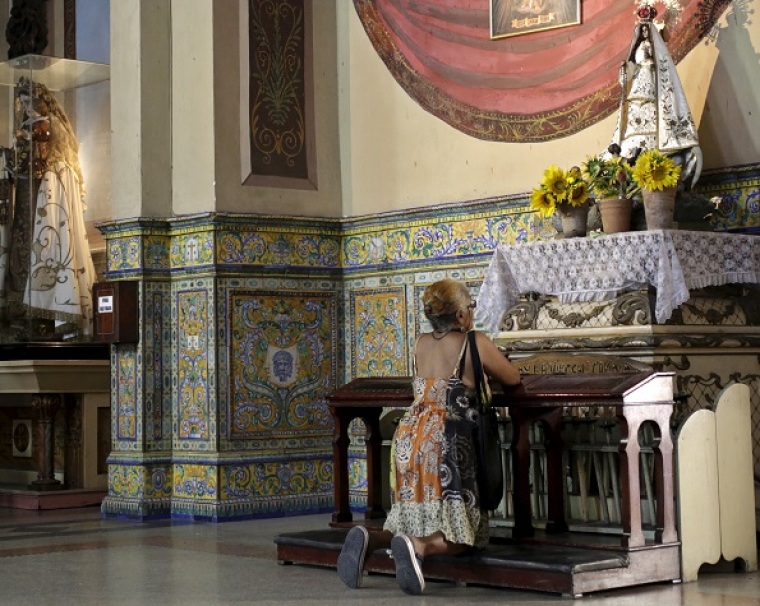Pope will visit Cuba before visit to U.S.

VATICAN CITY (Christian Examiner) – The Vatican announced April 22 that Pope Francis will visit Cuba before his planned trip to the United States in September.
A Vatican spokesman, Jesuit Father Federico Lombardi, told reporters the pontiff had received the invitation from Cuban officials and accepted it. The visit will be Francis' first to the communist nation since his installation as leader of the Roman Catholic faithful.
Pope Benedict XVI, predecessor to Francis, visited Cuba during his pontificate in 2012. During that visit, Benedict said he visited Cuba to encourage the church to "proclaim the Gospel with joy despite the lack of means and difficulties still left to overcome so that religion may carry is spiritual and educational service in the public realm."
That message drew criticism from Cuban-Americans in Florida, who said Benedict refused to confront real issues like forced abortions, human trafficking and human rights abuses against the political opposition and Protestant churches in Cuba. Instead, Benedict focused on opening dialogue between Cuba and other nations and helping the island make a "peaceful transition" to a new form of government.
"Today, it is evident that Marxist ideology in the way it was conceived no longer corresponds to reality," Benedict said in 2012.
Pope Francis has an affinity for Cuba. In 1998 he published a book on the speeches Pope John Paul II had given in Cuba during his visit to the country. In the book, Francis, then archbishop of Buenos Aires, Argentina, said dialogue between the U.S. and Cuba would help the countries settle differences.
Importantly, however, Francis argued then against "ideological systems that offended the transcendent dignity of the human person," the Vatican said in its statement announcing the visit later this year.
President Obama announced in December that he had begun the process of normalizing relations with Cuba after more than 50 years of embargo on the country, established after Fidel Castro seized power in Cuba during the communist revolution of 1959. Cuban President Raul Castro and President Obama also met at the Summit of the Americas in April.
Raul Castro has stated his commitment to Cuba's Marxist principles in spite of the thaw in relations with the U.S. "We must not expect that in order for relations with the United States to improve, Cuba must abandon the ideas that it has struggled for," Castro said in Havana just after the announcement from Washington.
The Vatican is crediting its diplomatic service for the thaw in relations between Cuba and the U.S. In an editorial in December, just after the move to normalize relations made headlines, the consulting editor of the Catholic Herald and Catholic priest Alexander Lucie-Smith, said the Vatican had "ended" the long-term conflict between the nations.
"Both will doubtless gain by this: America will no longer have an enemy so close to its own soil, with all the dangers that poses; and Cuba will, putting the old foe aside, perhaps concentrate on what really matters, namely, raising the living standards of its people. But there is a third major winner in the process, and that is the Pope and the Vatican's diplomatic service," Lucie-Smith said.